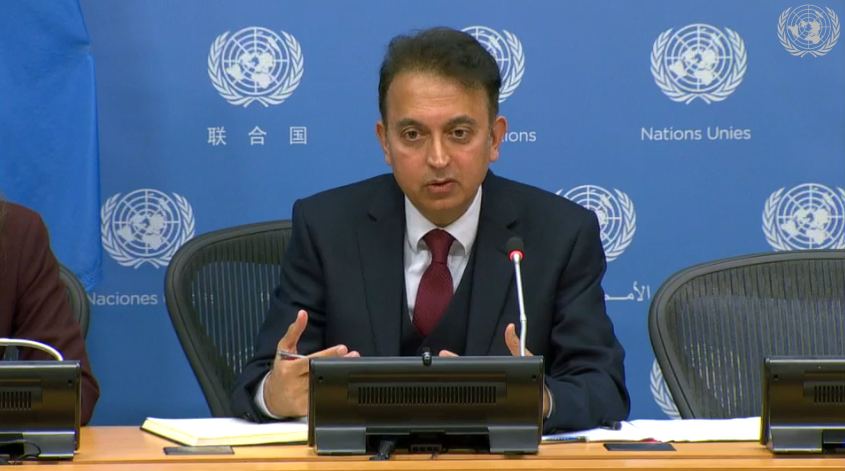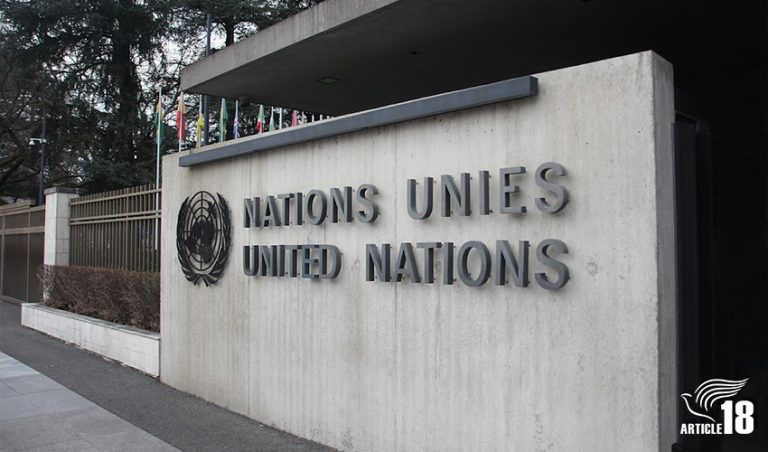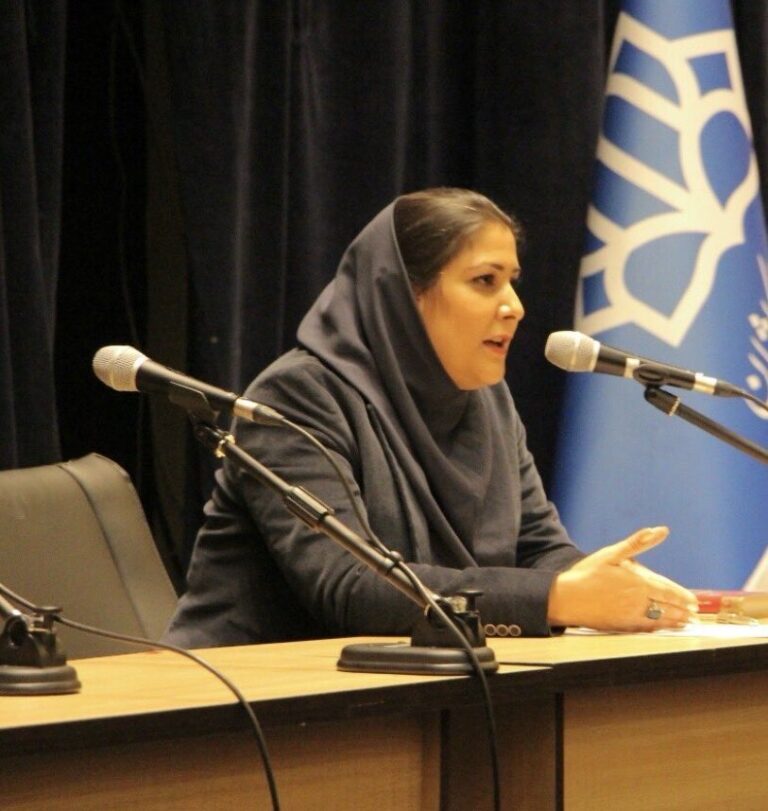The UN Special Rapporteur on Human Rights in Iran has reiterated his concerns over the “disturbing” treatment of religious minorities in Iran, including Christian converts, who he says are “consistently persecuted”.
Javaid Rehman, speaking at a press conference in New York on 22 October, said house-churches are “consistently targeted” by the Islamic Republic of Iran, and that “all forms of harassment and intimidation are bestowed, unfortunately, on the Christian converts”.
Mr Rehman said he had chosen to focus the “bulk” of his latest report, which he presented at the UN General Assembly on 23 October, on ethnic and religious minorities because of the “disturbing pattern of human rights concern we are witnessing”.
“Also I think I can be more constructive if I go into more detail, analyse and build up stronger recommendations through a deeper analysis,” he said.
Mr Rehman said he had particular concern for those minorities “who are not recognised within the Iranian legal system, and Christian converts are [among] those”.
“In my report, I have called for the desperately needed legislative and policy changes in order to guarantee the rights of all Iranians,” he said.
Mr Rehman said that of the estimated 350,000-500,000 Christian converts in Iran, “there are a significant number who are persecuted because they are engaging in their freedom of religion and belief”.
Mr Rehman said ethnic and religious minorities “represent a disproportionate number of individuals executed on national-security-related charges and a disproportionate number of political prisoners.
“They are subject to arbitrary arrests and detentions for their participation in a range of peaceful activities. And they are subject to hatred, incitement and discrimination for which the national legal framework provides little or no protection.”
What does the report say?
As Article18 reported in August, Mr Rehman notes that Iran, as a party to the International Covenant on Civil and Political Rights, is obliged to provide its citizens with “freedom of thought, conscience and religion, including the freedom to have or to adopt a religion or belief of their choice, or not to have or adopt a religion, and the freedom, either individually or in community with others and in public or private, to manifest their religion or belief in worship, observance, practice and teaching”.
He points out that, while Christians are a recognised religious minority, alongside Jews and Zoroastrians, such recognition is not afforded to Muslims who convert to Christianity.
“Even for the recognised religious minorities, there is no provision under the legal system of the Islamic Republic of Iran permitting conversions from Islam, which is considered apostasy,” he writes. “This puts Christian converts from Islam at risk of persecution. Apostasy is not codified as an Islamic Penal Code offence, but conversion from Islam is punishable by death.”
While in reality it is rare for converts to Christianity to be sentenced to death, Mr Rehman notes that the possibility remains and has precedent in the case of pastor Yousef Nadarkhani, who was sentenced to death in 2010.
Meanwhile, as converts are “not granted access to officially recognised Christian churches,” Mr Rehman says this “forces them to gather clandestinely in informal ‘house churches’”, attendance of which can lead to “arrests, detention and repeated interrogations about their faith”.
“Most Christian converts who have been arrested and detained have been charged with ‘propaganda against the system’, ‘propagation of Zionist evangelical Christianity’ or ‘administering and managing the home churches’,” Mr Rehman adds.
He cites the recent example of Abdolreza (Matthias) Ali-Haghnejad, one of nine Christians arrested in Rasht in early 2019, and also the case of pastor Victor Bet-Tamraz, who is facing a ten-year prison sentence, and his wife and son, who were also given prison sentences because of their Christian activities.
Mr Rehman adds that converts have been “subjected to sexual abuse and ill treatment” during detention.
“One young woman had reportedly been repeatedly subjected to sexual assault by a policeman, leaving her traumatized and requiring treatment for post-traumatic stress disorder in a psychiatric hospital,” he writes. “In a separate case, a young male Christian convert detained in Tehran was allegedly hit with wooden sticks and his head banged against a wall.”
Mr Rehman’s very first recommendation to the Supreme Leader is an amendment to Article 13 of Iran’s Constitution, such that “all religious minorities and those who do not hold any religious beliefs are recognized and able to fully enjoy the right to freedom of religion or belief”.
He calls for amendments to “all articles in the Islamic Penal Code that discriminate on the basis of religious or belief”, and for due process and fair-trial guarantees, “including access to a lawyer of their choosing” to be afforded to all persons accused of a crime. (Matthias and four of his co-defendants recently had their bail amounts increased tenfold after insisting on being allowed to choose their own lawyer.)
Mr Rehman also calls on Iran’s government to “refrain from targeting members of recognized and non-recognized religious minorities with national security-related charges”, to “refrain from persecuting peaceful religious gatherings in private homes and other premises, refrain from convicting religious leaders and cease the monitoring of citizens on account of their religious identity”,and to “end the criminalisation of the peaceful expression of faith”.
He also asks for new places of worship for all religious minorities, including “new churches throughout the country”.
In July, Mr Rehman had pledged to look into the treatment of Christian converts in Iran “very seriously”, saying he was “personally very concerned” about the issue.




0 Comments
Trackbacks/Pingbacks